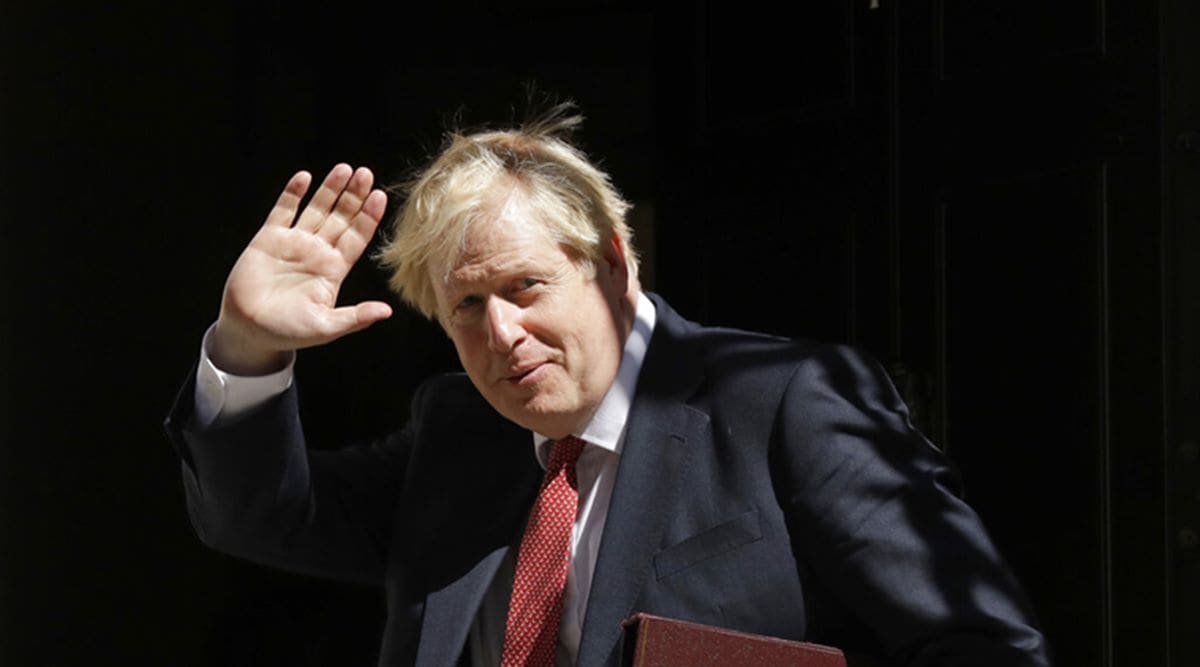
[ad_1]
 The prime minister said the proposed legislation, which will rewrite part of the Withdrawal Agreement, is “essential” to maintain the U.K.’s economic and political integrity.
The prime minister said the proposed legislation, which will rewrite part of the Withdrawal Agreement, is “essential” to maintain the U.K.’s economic and political integrity.
U.K. Prime Minister Boris Johnson’s plan to renege on part of the Brexit divorce deal passed its first hurdle in Parliament late Monday after a bruising debate in which senior members of his own party denounced the move.
The House of Commons passed the Internal Market Bill by 340 to 263 in its first main vote, allowing it to go through to the next stage in the parliamentary process on Tuesday.
The prime minister said the proposed legislation, which will rewrite part of the Withdrawal Agreement, is “essential” to maintain the U.K.’s economic and political integrity. He accused the European Union of making “absurd” threats to stop food moving from mainland Great Britain to Northern Ireland.
“The EU hasn’t taken that particular revolver off the table,” Johnson told MPs. “It is such an extraordinary threat, and it seems so incredible the EU could do this, that we are not taking powers in this bill to neutralize that threat, but obviously reserve the right to do so if these threats persist.”
Johnson’s decision to rip up part of an international agreement he signed less than a year ago has already pitched the Brexit negotiations into turmoil. The EU has threatened legal action and called on him to withdraw the bill by the end of the month. Pressing on risks jeopardizing efforts to secure a trade deal with the bloc before the Brexit transition period expires at the end of the year.
While the prime minister had a comfortable majority in Monday night’s vote, with only two Tories voting against him for now and others abstaining, there will be opportunities for further rebellions as the bill passes through the Commons. Johnson will then face a bigger obstacle in the House of Lords, where Tory grandees including former leader Michael Howard have denounced the legislation and could delay its progress.
Lawmakers on both sides of the House of Commons said the government’s admission that the proposed legislation would breach international law will weaken Britain’s place in the world and hobble its attempts to call other countries — including Russia, China and Zimbabwe — to account.
“Britain has been a beacon in some very difficult places of the world for support for the rule of law, and our support is relied upon,” former Tory International Development Secretary Andrew Mitchell said. “We have a duty to uphold the rule of law.”
‘Insurance Policy’
Conservative former Attorneys General Geoffrey Cox and Jeremy Wright said they wouldn’t back a bill that breaks international law, and were joined by former finance minister Sajid Javid. Rehman Chishti, Johnson’s special envoy for freedom of religion or belief, quit earlier in the day, saying he couldn’t vote for the plan.
“I understand how some people will feel unease over the use of these powers, and I share that sentiment myself and I have absolutely no desire to use these measures,” Johnson said. “They are an insurance policy, and if we reach agreement with our European friends — which I still believe is possible — they will never be invoked.”
Tory rebels did offer the prime minister a potential way out with a proposed amendment — which wasn’t put to a vote Monday — that would require the government to hold a further vote in the House of Commons before it could change the terms of the Withdrawal Agreement.
For their part, opposition lawmakers lined up to accuse Johnson of failing to deliver on his promise at December’s general election that his deal was “oven ready.” They also said he had failed to live up to his claims that he had provided protection against the exact issues on the Irish border he is now seeking to repair.
“It’s his deal, his mess, his failure,” Ed Miliband, Labour’s business spokesman, told the Commons. “This is the wrong thing to do, it’s not necessary and it’s deeply damaging for the country.”
📣 The Indian Express is now on Telegram. Click here to join our channel (@indianexpress) and stay updated with the latest headlines
For all the latest World News, download Indian Express App.
[ad_2]
Source link